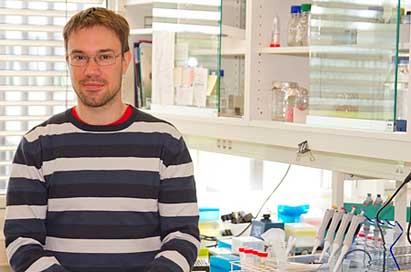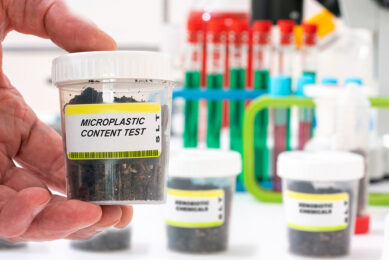Promising fatty acid in fish feed

The bioactive fatty acid TTA in fish feed can have an extremely positive effect on fish health, says Norwegian business oriented research group Nofima. A fresh doctoral thesis points to the fact that it has a similar effect on the heart as exercise.
Fabian Grammes at Nofima has studied the use of tetradecylthioacetic acid (TTA) in feed for Atlantic salmon smolt in sea cages. Trials during a natural outbreak of heart and skeletal muscle inflammation (HSMI) showed a significantly lower mortality rate of Atlantic salmon that were fed the TTA supplemented diet than salmon which were not.
Grammes also observed increased relative heart weight and increased cardiac gene expression six weeks after TTA feeding ended. In addition, the study indicates that TTA increases the expression of genes that regulate the immune system.
Good for stressed fish
Grammes studied genetic expression in heart samples of Atlantic salmon unaffected by viral diseases, and these results confirm the profound effects of TTA in the trials involving exposure to HSMI.
“The hearts had increased metabolism, increased growth and an increased ability to contract,” he said. “The increased cardiac performance that we found for TTA-fed fish indicates significant benefits for farmed salmon in stressful situations.”
However, Grammes emphasises that in order to substantiate these positive results on natural disease outbreaks, a challenge trial will be necessary. Physiological data is required to substantiate these results at gene level.
Immune stimulation
Laboratory studies of macrophage cells (macrophages are cells which can both increase and reduce inflammation) from the kidneys support the fish trials that point to the fact that TTA has a positive effect on the immune system.
These results can explain the reduced mortality in the trial involving the HSMI outbreak. The scientists also tested the immune cells with an artificial virus and found that TTA has a positive effect. “TTA can help us to understand how functional feed can influence fish health,” says Grammes.
Not approved in feed
Tetradecylthioacetic acid is a bioactive fatty acid, which has an effect on several biological processes, including metabolism and inflammatory reactions. A lot of research is carried out on TTA in mammals and human beings. It was found that intake of high concentrations of TTA may be harmful and TTA is not currently approved as an ingredient in feeds for animals.
Source: Nofima
Join 26,000+ subscribers
Subscribe to our newsletter to stay updated about all the need-to-know content in the feed sector, three times a week. Beheer
Beheer









 WP Admin
WP Admin  Bewerk bericht
Bewerk bericht